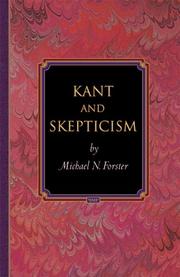| Listing 1 - 2 of 2 |
Sort by
|
Book
ISBN: 9780199228119 0199228116 0199659389 9786612939396 0191582794 1282939394 9780191582790 9781282939394 6612939397 Year: 2010 Publisher: New York : Oxford University Press,
Abstract | Keywords | Export | Availability | Bookmark
 Loading...
Loading...Choose an application
- Reference Manager
- EndNote
- RefWorks (Direct export to RefWorks)
Michael Forster explores the tradition of the study of language in German philosophy. He also makes the case that the most important thinker within that tradition was J.G. Herder.
Language and languages --- Philosophy. --- Herder, Johann Gottfried, --- Philosophy --- Herder, J. G. --- Gerder, Iogann Gotfrid, --- Herder, Johann Gottfried von, --- Herder, Yohan Goṭfrid, --- Herder, J. G. von --- Von Herder, J. G. --- Herder, Giovanni Goffredo, --- הערדער, יאהן גאטטפריעד פ. --- הרדר, יוהאן גוטפריד, --- von Herder, Johann Gottfried --- Herder, Johann Gottfried

ISBN: 1283069539 9786613069535 1400824400 9781400824403 9780691129877 0691129878 9780691146515 0691146519 Year: 2010 Publisher: Princeton : Princeton University Press,
Abstract | Keywords | Export | Availability | Bookmark
 Loading...
Loading...Choose an application
- Reference Manager
- EndNote
- RefWorks (Direct export to RefWorks)
This book puts forward a much-needed reappraisal of Immanuel Kant's conception of and response to skepticism, as set forth principally in the Critique of Pure Reason. It is widely recognized that Kant's theoretical philosophy aims to answer skepticism and reform metaphysics--Michael Forster makes the controversial argument that those aims are closely linked. He distinguishes among three types of skepticism: "veil of perception" skepticism, which concerns the external world; Humean skepticism, which concerns the existence of a priori concepts and synthetic a priori knowledge; and Pyrrhonian skepticism, which concerns the equal balance of opposing arguments. Forster overturns conventional views by showing how the first of these types was of little importance for Kant, but how the second and third held very special importance for him, namely because of their bearing on the fate of metaphysics. He argues that Kant undertook his reform of metaphysics primarily in order to render it defensible against these types of skepticism. Finally, in a critical appraisal of Kant's project, Forster argues that, despite its strengths, it ultimately fails, for reasons that carry interesting broader philosophical lessons. These reasons include inadequate self-reflection and an underestimation of the resources of Pyrrhonian skepticism.
Skepticism. --- Scepticism --- Unbelief --- Agnosticism --- Belief and doubt --- Free thought --- Kant, Immanuel, --- Kant, Immanuel --- Kant, I. --- Kānt, ʻAmmānūʼīl, --- Kant, Immanouel, --- Kant, Immanuil, --- Kʻantʻŭ, --- Kant, --- Kant, Emmanuel, --- Ḳanṭ, ʻImanuʼel, --- Kant, E., --- Kant, Emanuel, --- Cantơ, I., --- Kant, Emanuele, --- Kant, Im. --- קאנט --- קאנט, א. --- קאנט, עמנואל --- קאנט, עמנואל, --- קאנט, ע. --- קנט --- קנט, עמנואל --- קנט, עמנואל, --- كانت ، ايمانوئل --- كنت، إمانويل، --- カントイマニユエル, --- Kangde, --- 康德, --- Kanṭ, Īmānwīl, --- كانط، إيمانويل --- Kant, Manuel,
| Listing 1 - 2 of 2 |
Sort by
|

 Search
Search Feedback
Feedback About UniCat
About UniCat  Help
Help News
News